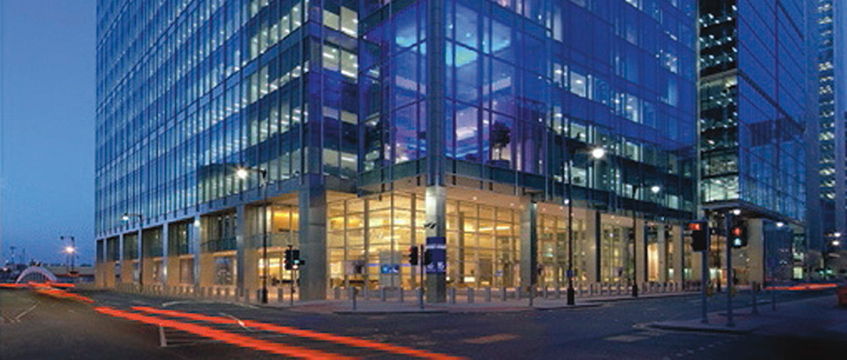Sale-and-leaseback opportunities valued at £800m were put on sale in central London during August, as owner-occupiers sought to cash in on investor appetite for long-term, secure income streams, write Nick Johnstone and Graham Shone.
KPMG this week instructed JLL to sell its headquarters at 15 Canada Square, E14, for £400m. In return, the purchaser will get access to a 25-year index-linked lease to a blue chip covenant.
Similar deals are being prepped by Lloyds, which is selling its 28 Gresham Street, EC2, headquarters for £150m, and Anglo American, which has put the headquarters of sister company De Beers at 17 Charterhouse Street, EC1,up for sale for £230m.
Scarcity value
The environment for such transactions is favourable. Yields for “trophy” standing investments – specifically buildings that are wholly let to single tenants with strong covenants, spanning a long lease length and offering fixed index-linked uplifts – are low. KPMG’s asking yield in Canary Wharf, for example, is 4-4.25%; the same goes for De Beers.
These types of investment are scarce and in demand for a number of reasons. Fundamentally, the appetite for long-dated income is underpinned by the fact that in general, lease lengths are shortening.
In central London, says Michael Elliott partner Mark Shipman, standard office stock has an average lease length of seven years and falling, and this structural shift is emphasised by the growth of flexible office providers and tech occupiers.
This is in stark contrast to the sale-and-leaseback deals with 20-25-year leases to grade-A covenants with uplifts.
UK institutions, many priced out of traditional prime central London “trophies” by overseas investors, have been particularly pushed towards such purchases as they look to match their long-dated liabilities. Standard Life has carried out two sale-and-leasebacks in 2017: with Kier Construction and the Ivy restaurant group in Covent Garden. M&G did a similar deal with WPP, buying Rose Court, SE1 in April for £190m.
Overall, in a low interest rate environment, investors are increasingly drawn to property, driving down yields further. Simultaneously, economic uncertainty sends them in search of risk-averse property, so corporate sale-and-leasebacks would naturally fit this category.
IFRS 16 rules
Corporate occupier consultants are expecting a wave of similar work to come off the back of new international financial reporting standards that come into force in 14 months’ time.
The changes place leases as liabilities on corporate balance sheets, rather than accounting for them as an operating cost. In isolation this would be a driver for corporates to buy or retain leaseholds, but the legislation is forcing corporates to look more closely at their property portfolios and in doing so are taking into consideration a broader range of factors.
According to Chad Brown, associate in the corporate capital markets team at CBRE, companies are looking at four things: their operational needs, their financial position, their current occupation and the broader leasing and investment markets. Once these are assessed they will determine whether to commit to a permanent freehold or a more flexible leasehold that frees up liquidity.
KPMG managing partner Philip Davidson echoes these points: “We are seeing strong demand from investors for prime London assets and we want to capitalise on this rising market.
“Ownership of property is not core to our business and this move reflects our wider strategy: we lease buildings in 22 locations across the UK, keeping our capital free to invest in our business and facilities. As a firm we are making considerable investments developing technologies to provide new services and solutions to our clients, while enhancing traditional processes like audit. This transaction will accelerate that ambition.”
Julian Sandbach, JLL head of West End investment, says: “I think corporates are looking very hard at on-balance-sheet assets. There is high demand for long-dated defensive assets and if there’s some form of indexation, they will know they can get low yields.”
So if owning property is not core to your business, why have the inflexibility of owning a freehold when in fact you can release liquidity in a favourable climate? The process could be a win-win for both vendors and purchasers.
To send feedback, e-mail nick.johnstone@egi.co.uk or tweet @n_johnstone or @estatesgazette
To send feedback, e-mail graham.shone@egi.co.uk or tweet @GShoneEG or @estatesgazette











